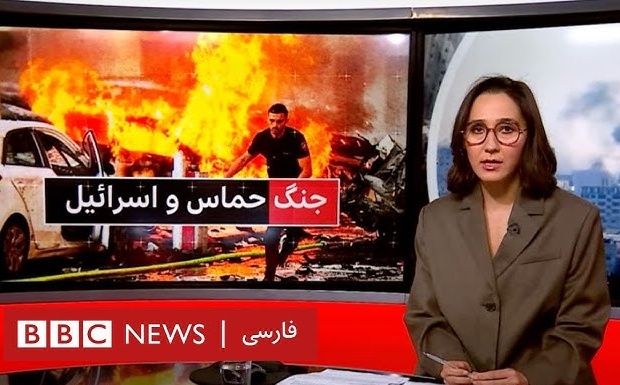Iran’s authorities have stepped up threats, made for more than a decade, against journalists of the British Broadcasting Corporation.
In Iran, relatives of BBC Persian staff are being harassed and detained, as the journalists — based in London — are being targeted with offensive messages and threats of sexual assault.
Staff in “constant fear” are being supported by therapists and specialists in Post-Traumatic Stress Disorder.
One UK-Iranian dual national was sent the message: “On Westminster Bridge is a very deep river. It doesn’t matter that you don’t live in Iran – we can also do whatever we want in London.” She has been warned that her home address and child’s school can be found.
Officials in Iran — the world’s second largest jailer of journalists per capita — have targeted BBC Persian since 2009, when mass protests challenged the disputed Presidential election. Investigations were launched in 2017, claiming the reporting was a crime against Iran’s “national security”. Financial restrictions were placed on 152 current and former BBC Persian employees, freezing their assets in Iran and banning them and their families from selling or renting property.
See also Iran Regime’s Attacks on BBC Persian’s Staff
But, as Caoilfhionn Gallagher, the lead attorney for BBC Persian, says, there has been “a marked spike in harassment during and since the BBC News Persian coverage of protests at the death in custody of Mahsa Amini in 2022″.
In October 2022, amid the “Woman. Life. Freedom” demonstrations, the Iran Foreign Affairs Ministry cited BBC Persian in a list of organisations and people charged with “deliberate actions in support of terrorism, incitement of violence, and human rights abuses”.
Last week, the UN’s first report on the targeting and silencing of women in public life highlighted Iranian attacks.
“Our Family Members in Iran May Pay The Price”
Some journalists have left the BBC. Others no longer appear on camera or work under a pseudonym.
Behrang Tajdin says:
We have been going to work every morning, trying to forget that we have family members. When we do our job well, as journalists working within BBC editorial guidelines — trying to be accurate, fair and balanced storytellers — then our family members in Iran may pay the price for that.
Iranian authorities have ordered families to tell relatives to stop working for BBC Persian or to return to Iran or neighbouring countries and meet intelligence agents. Some families have been warned, “We will catch them and flay them alive.”
One journalist’s conversations with her parents in Iran were wiretapped and disseminated on websites affiliated with the Revolutionary Guards. Another reporter’s brother was pressured to testify against him on State TV; when he refused, his passport was confiscated.
Another BBC Persian staff member said:
My elderly mum was interrogated five times. The last time was a day before New Year. Three men with black masks forced her to sit facing the wall for more than five hours and interrogated her because of her daughter’s job in another country.
Journalist Soran Qurbani explains:
I’ve never censored myself or done something in the Iranian government’s favor, but when they beat my brother in jail just because of my work, I feel responsible somehow.
My family didn’t do anything wrong. Journalism is not a crime. But you sometimes think: “Is it worth it to keep doing this?”
It’s not easy to deal with.


Iranian film director and Wife Found Stabbed to Death
https://iranwire.com/en/society/121555-iranian-film-director-and-wife-found-stabbed-to-death/
He recently got into kerfuffle with authorities over some of his work, and he published video of it. He was threatened to death by some mysterious characters, he reported the incidents but was ignored…. He was one of most prolific film makers of iran.
Brutal Killing Of Iranian Filmmaker Reminds of Past Political Murders
https://iranwire.com/en/society/121646-brutal-killing-of-iranian-filmmaker-reminds-of-past-political-murders/